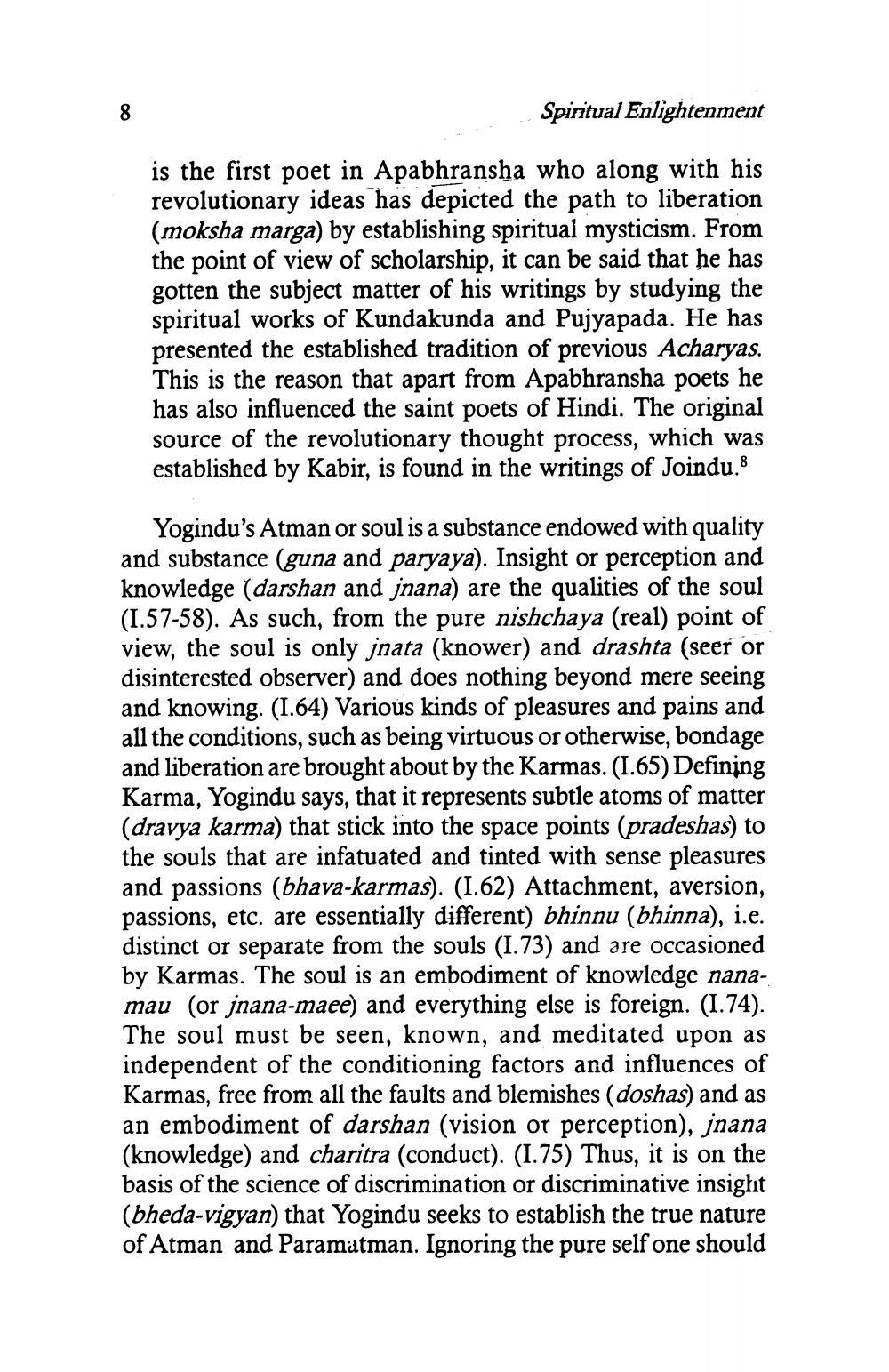________________
Spiritual Enlightenment
is the first poet in Apabhransha who along with his revolutionary ideas has depicted the path to liberation (moksha marga) by establishing spiritual mysticism. From the point of view of scholarship, it can be said that he has gotten the subject matter of his writings by studying the spiritual works of Kundakunda and Pujyapada. He has presented the established tradition of previous Acharyas. This is the reason that apart from Apabhransha poets he has also influenced the saint poets of Hindi. The original source of the revolutionary thought process, which was established by Kabir, is found in the writings of Joindu.8
Yogindu's Atman or soul is a substance endowed with quality and substance (guna and paryaya). Insight or perception and knowledge (darshan and jnana) are the qualities of the soul (1.57-58). As such, from the pure nishchaya (real) point of view, the soul is only jnata (knower) and drashta (seer or disinterested observer) and does nothing beyond mere seeing and knowing. (1.64) Various kinds of pleasures and pains and all the conditions, such as being virtuous or otherwise, bondage and liberation are brought about by the Karmas. (1.65) Defining Karma, Yogindu says, that it represents subtle atoms of matter (dravya karma) that stick into the space points (pradeshas) to the souls that are infatuated and tinted with sense pleasures and passions (bhava-karmas). (1.62) Attachment, aversion, passions, etc. are essentially different) bhinnu (bhinna), i.e. distinct or separate from the souls (1.73) and are occasioned by Karmas. The soul is an embodiment of knowledge nanamau (or jnana-maee) and everything else is foreign. (1.74). The soul must be seen, known, and meditated upon as independent of the conditioning factors and influences of Karmas, free from all the faults and blemishes (doshas) and as an embodiment of darshan (vision or perception), jnana (knowledge) and charitra (conduct). (I.75) Thus, it is on the basis of the science of discrimination or discriminative insight (bheda-vigyan) that Yogindu seeks to establish the true nature of Atman and Paramatman. Ignoring the pure self one should




